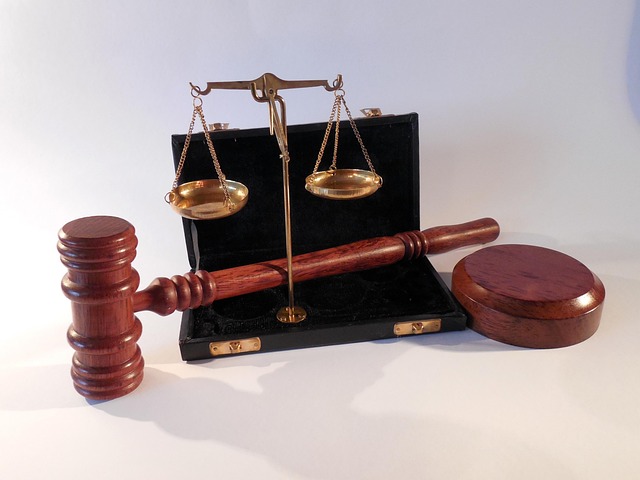Uncovering financial crimes requires a structured approach, including understanding regulatory law and navigating litigation stages. Forensic accountants examine evidence, identify violations, and trace money trails. Initial stages involve collecting digital evidence, interviewing key individuals, and identifying witnesses. This comprehensive process ensures proper documentation for robust case presentation in criminal and civil frameworks, impacting outcomes for accused individuals and financial systems integrity. Effective legal representation demands deep knowledge of regulations and financial records throughout these stages.
Unraveling financial crimes requires a meticulous dance through intricate investigative procedures and robust legal frameworks. This article delves into the multifaceted process, exploring key stages from initial probes to final verdicts. We dissect the critical role of regulatory law as a cornerstone for prosecution and analyze the litigious journey, highlighting the importance of evidence in shaping finance crime investigations. By understanding these regulatory litigation stages, we gain insights into combating financial fraud effectively.
- Uncovering Financial Crimes: Initial Investigations
- Regulatory Law: A Cornerstone of Prosecution
- Litigious Stages: From Indictment to Verdict
- The Role of Evidence in Finance Crime Probes
Uncovering Financial Crimes: Initial Investigations

Uncovering financial crimes requires a meticulous and structured approach, especially during initial investigations. This phase is crucial in laying the foundation for subsequent legal proceedings, as it involves gathering evidence, analyzing financial transactions, and identifying potential violations of regulatory laws. Forensic accountants play a pivotal role here, meticulously sifting through complex financial records to uncover discrepancies and suspicious activities. They employ advanced tools and techniques to trace money trails, revealing hidden assets or illicit transactions that may be linked to white-collar and economic crimes.
The initial investigation stages involve multiple steps: understanding the regulatory framework relevant to the case, collecting and preserving digital evidence, interviewing key individuals for their accounts of events, and identifying potential witnesses. This comprehensive process ensures that all relevant facts are considered and documented properly. As investigations progress, these initial findings guide prosecutors through the litigation stages, ensuring a robust case presentation aimed at holding offenders accountable for his clients’ financial crimes.
Regulatory Law: A Cornerstone of Prosecution

Regulatory law plays a pivotal role in the prosecution of finance crime probes, acting as a cornerstone that guides investigations and shapes litigation stages. It involves intricate rules and guidelines designed to ensure fairness, transparency, and accountability in financial transactions. Understanding regulatory law is crucial for both prosecutors and general criminal defense attorneys when dealing with high-stakes cases involving white collar and economic crimes.
This legal framework dictates how financial institutions operate, sets standards for reporting and record-keeping, and establishes penalties for non-compliance. In the context of financial crime investigations, it serves as a map that helps navigate complex web of regulations, ensuring that evidence is collected and presented in accordance with the law. This meticulous approach not only strengthens the prosecution’s case but also safeguards the rights of the accused, making it an indispensable component of successful litigation stages in these high-stakes cases.
Litigious Stages: From Indictment to Verdict

The journey from indictment to verdict is a crucial phase in finance crime probes, where Understanding Regulatory Law becomes paramount. This litigious process involves meticulous steps that demand a deep understanding of both criminal and civil legal frameworks. Prosecutors must navigate complex regulations and financial records to build a robust case against alleged perpetrators, be it in the realm of white-collar defense or when addressing offenses within philanthropic and political communities.
Each stage requires strategic planning and execution, from gathering evidence to presenting arguments in court. The outcome can significantly impact not just the accused but also corporate and individual clients involved. Effective legal representation during these stages is essential, ensuring that rights are protected and justice is served while upholding the integrity of financial systems and the interests of society at large.
The Role of Evidence in Finance Crime Probes

Evidence plays a pivotal role in finance crime probes, particularly when it comes to white collar and economic crimes. In these intricate cases, where activities often span across various legal jurisdictions and involve complex financial transactions, a thorough understanding of regulatory laws becomes essential. Each stage of litigation demands meticulous documentation and preservation of evidence to build a robust case. From the initial investigation to subsequent trials, every step requires a methodical approach to ensure admissible and compelling proof.
The process involves sifting through reams of documents, digital records, financial statements, and communication logs. These primary sources are crucial in revealing patterns, identifying discrepancies, and establishing intent—key elements in white collar defense. Legal professionals must navigate the intricacies of regulatory frameworks to interpret and present evidence effectively during different litigation stages, ensuring a fair trial for their clients while upholding justice in cases of general criminal defense.
In the intricate landscape of finance crime probes, understanding the interplay between initial investigations, regulatory law, and litigious stages is paramount. Each component—from uncovering financial crimes to managing evidence and reaching verdicts—plays a crucial role in maintaining the integrity of financial systems. By delving into these processes, we gain insights that empower legal professionals to navigate complex cases effectively. Moreover, this knowledge underscores the importance of regulatory law as a cornerstone for successful prosecution, ultimately fostering fairness and transparency within the financial realm.






